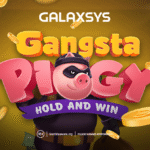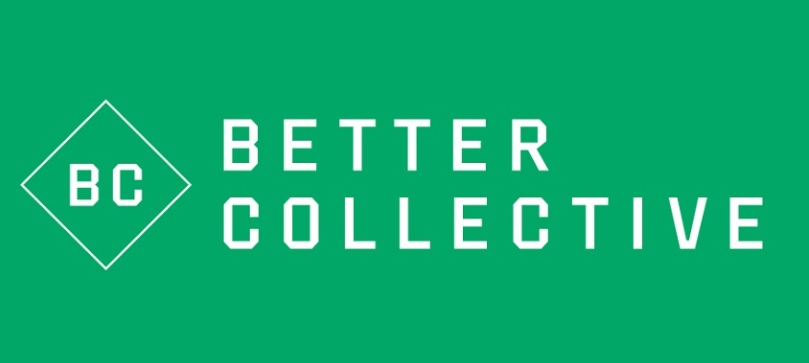Bobby Jones, the amateur golf great, profited handsomely from his unprecedented exploits in 1930, the year in which he completed the Grand Slam of his era. Thanks to his improbable sweep of the Open and Amateur championships in the U.S. and Britain, Mr. Jones cashed in with a lucrative motion-picture deal, among other opportunities.
Scottish golfer Bobby Cruickshank did OK, too—thanks to Mr. Jones.
When Mr. Jones captured the third leg of the Slam in July at the U.S. Open at Interlachen, in Minnesota, Mr. Cruickshank cashed a betting slip worth $10,500, a tidy windfall on the $50 he risked in April with a broker in London, the Associated Press reported at the time. Mr. Cruickshank had wagered that Mr. Jones would win the year’s first three majors. “I saw Bobby win the Savannah Open, knew the shape he was in, and made the best bet of my life,” Mr. Cruickshank said in the article.
Gambling in golf—or on it—might not be as old as the gutta-percha ball that became popular with golfers in the 19th century (though then again, it might), but wagering on the sport is about to explode in ways that will make your office pool seem quaint, confining and, potentially, relatively paltry.
In the wake of a 2018 U.S. Supreme Court ruling that struck down a federal law regulating sports betting in several states, wagering on sports has exploded. Between June 2018—the month after the high court ruled 6-3 that the Professional and Amateur Sports Protection Act was unconstitutional—and November 2020, more than $35 billion was legally wagered on sports nationwide, and sports books raked in $2.5 billion in revenue, according to the American Gaming Association. Before the ruling, the association estimates that at least $150 billion annually was gambled on sports in the U.S.—and 97% of that was bet illegally.
The PGA Tour, staunchly averse previously to the slightest hint of gambling in its tournaments, all at once began incorporating gambling into its business model. The organization that once scolded Phil Mickelson and Mike Weir for a $500 bet on a lone bunker shot as they watched a playoff between Tiger Woods and Jim Furyk in a World Golf Championship event in Akron, Ohio, would like nothing more than to see that kind of in-play gambling become the norm.
“I would point to that decision as the trigger that led to all of this,” says Norb Gambuzza, the PGA Tour’s senior vice president of media business development. “The PGA Tour, along with every sports league, started to wrestle with the idea that sports betting may be upon us, whether we like it or not. With that eventuality placed in front of our faces, we began to say, ‘OK, if this does happen, how are we going to do it in a manner that works for our business?’”
In anticipation of the Supreme Court’s ruling, the tour in late 2017 instituted an integrity program to protect all of its tournaments across the six circuits it operates from potential outside influences related to gambling. Next, it announced a global partnership with IMG Arena to license its ShotLink scoring data (a system the tour introduced in 2004 to collect data on every shot from every player) to online betting operators and sports-media companies.
Since then, it has forged relationships with official betting operators DraftKings DKNG -1.58%(which hosts the official daily fantasy game of the PGA Tour), BetMGM, FanDuel, PointsBet and theScore Bet. It also has a content platform partnership with Action Network to create GolfBet, a cooperative golf-focused betting-content platform. There are complex permutations to the various deals, but suffice it to say that the earnest gambler and the casual fan have plenty of options to access the golf gambling environment.
There’s a lot at stake, but generally, for the tour and its partners, sponsors and member events, the odds are in their favor, if you will. Which is the reason the tour made this move and did so aggressively.
“Sports betting can help [the tour] in two really big ways,” Mr. Gambuzza says. “One is the deeper engagement of the core fan, getting him or her to watch another 15, 30, 45 minutes per weekend. And the second is attracting a younger and more diverse audience.”
That engagement affects tour stakeholders in a rising-tide-lifts-all-boats scenario, Mr. Gambuzza adds. There’s potential for higher TV ratings, which means stronger advertiser and tournament-sponsor underpinning. Tour events held in states where gambling is legal likely could expect an uptick in attendance and greater value to its hospitality areas (once the Covid pandemic dissipates).
Who else is cashing in on this? Golf websites. Golf Digest, for instance, has a weekly podcast called “Be Right” and an array of online editorial content devoted to gambling. (Disclosure: This writer is a contributor to golfdigest.com, though not to its gambling content.)
“We knew at Golf Digest that this was going to be huge in golf because gambling has been such a big part of the game recreationally,” says Stephen Hennessey, deputy managing editor and co-host of the “Be Right” podcast, which recently picked up London-based bookmaker William Hill WMH -0.07%as a sponsor.
And the on-ramps are about to get significantly busier. Currently, wagering in golf is mostly limited to what are called “static” bets—picking a player to win, finish in the top 10 or beat another player head-to-head. “Prop” bets might include the over-under on how many balls found the water on the 17th hole at the recently completed Players Championship. But that’s just scratching the surface.
The holy grail is in-play betting, and the possibilities are endless because it represents the ability to wager on any shot from any player during competition. For instance, a gambler can bet on a player’s prospects for converting a 10-foot putt on one hole or whether another player can hit the green on a par-3 hole. Golf has built-in advantages to take advantage of this, namely its huge cache of player stats, its deliberate pace and the sheer number of shots per tournament. Mr. Gambuzza says that a typical PGA Tour season produces approximately 1.2 million golf shots.
In-play betting in golf was introduced in 2018 during “The Match,” the $9 million showdown between Mr. Woods and Mr. Mickelson in Las Vegas. More recently, the tour joined with NBC Sports and PointsBet to present a golf-betting simulcast of the Waste Management Phoenix Open on NBC’s Peacock Premium service. The show, aired concurrently with regular coverage of the tournament, focused on odds and presenting up to 500 betting options.
“There are a couple of sports really well-positioned to take advantage of that opportunity, and it’s baseball and it’s golf because of the amount of content and the pace of play,” says Scott Warfield, the tour’s vice president of gaming.
While many players see the potential benefits of the infusion of gambling to its competitions, some have reservations. Justin Thomas, a major champion and member of the PGA Tour Player Advisory Council, in February expressed concern that an on-site gambler might be inclined to affect the competition by interfering with a stroke. It could be as simple as a sudden loud noise or shout in the process of a player’s swing. “At the end of the day you can’t sit there and tell me that that isn’t a realistic chance,” he said.
Mr. Gambuzza acknowledges there are risks, but points out that betting on golf isn’t brand new. “It’s been legal for a long time in the U.K. and other parts of the world without incident,” he says.
Max Wright, senior vice president of IMG Arena, says his firm believes golf could become one of the most attractive sports for consumers to bet on, though “it will take a number of years to grow to that level of saturation.”
Mr. Shedloski is a writer in suburban Columbus, Ohio. He can be reached at reports@wsj.com.























